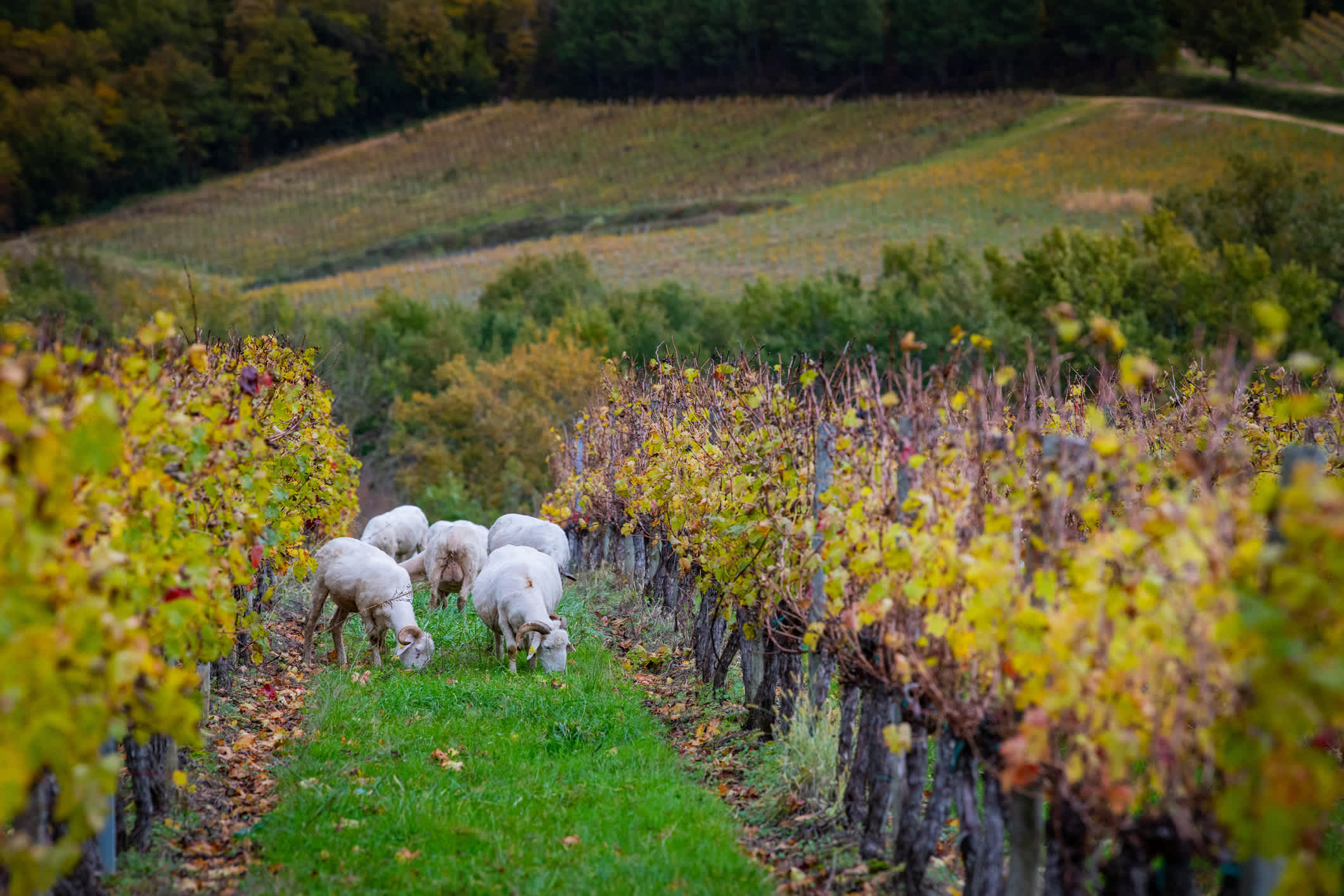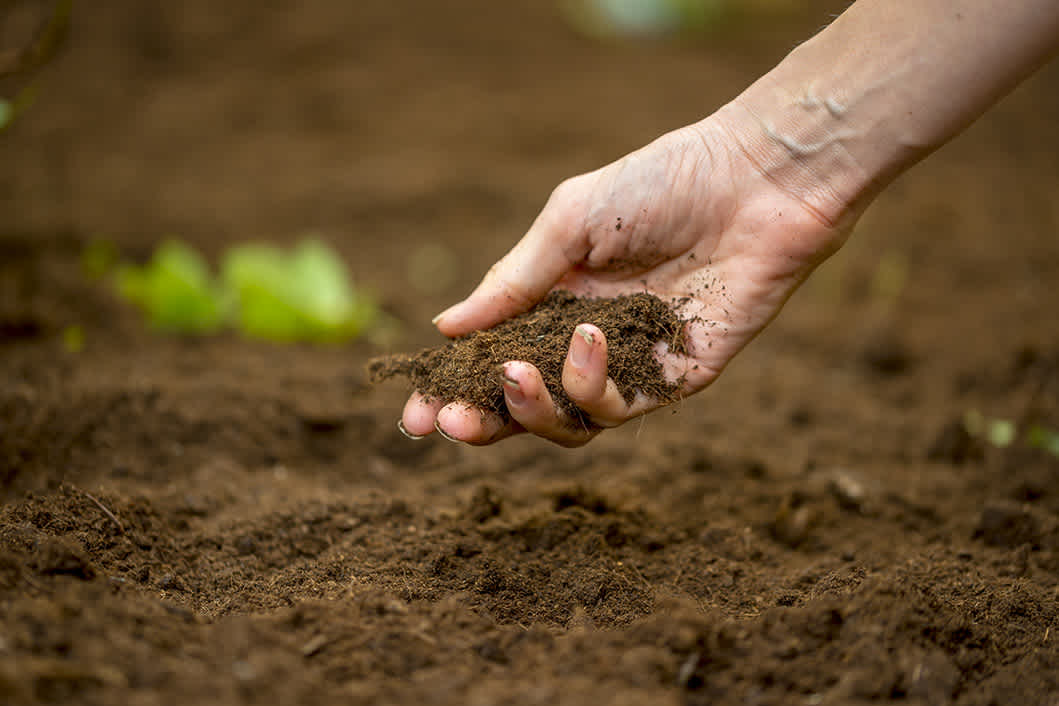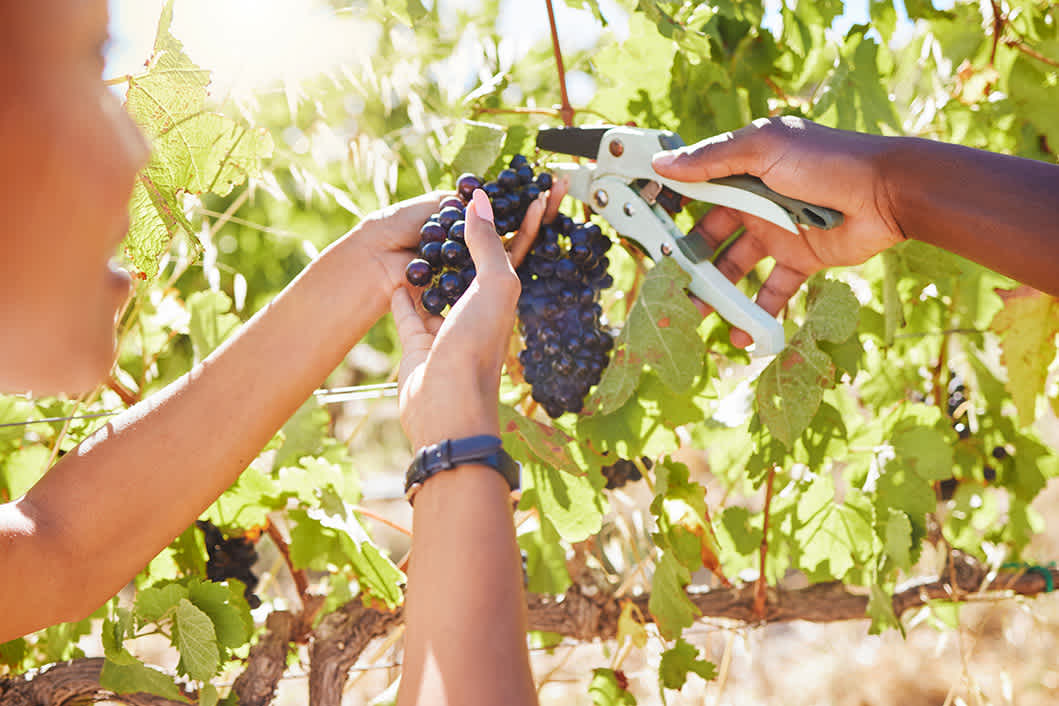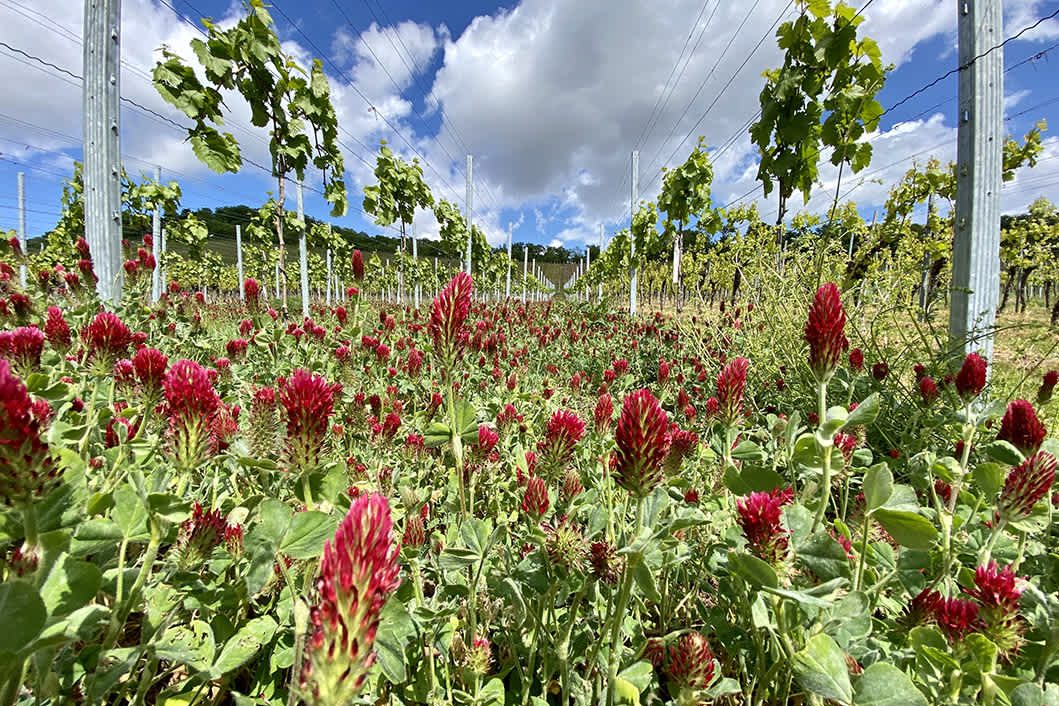Firstleaf's Guide to Sustainable Wines
Discover the world of eco-friendly wine.
There is a famous saying that great wines are made in the vineyard—and it's true. The best wines are an expression of the land that shaped them, down to each speck of soil, ray of sunshine and drop of rain. In an industry that is closely connected to nature, winemakers are committed to protecting it. Wine regions, big and small, are making a global push toward sustainability. At Firstleaf, we have the privilege to witness a variety of eco-friendly techniques as we curate wines from around the world. In this article, we will explore the many ways sustainable wine producers put the planet first. Visit our wine store to shop our entire collection of eco-friendly wines.
IN THIS ARTICLE:
Sustainable wines
The essence of sustainability is simple, manage your resources and minimize your impact. Sustainable wineries are mindful of what they put on their vines and into the soil, where it comes from and how it affects their surroundings. While many wine producers use sustainable practices, some take it further by pursuing formal certifications. There are numerous types of these certifications. They vary by country, state and independent party but follow common guidelines concerning:
Resource management
Energy efficiency
Water conservation
Herbicides and pesticide regulation
Waste reduction
Social responsibility
What is organic wine?
Organic winemaking and viticultural practices are rooted in the same ideas as sustainability. However, wines that use the term "organic" are tightly regulated by national governing bodies. They must adhere to rules concerning vineyard management and winemaking methods. In the United States, there are two important distinctions within organic wine. USDA-certified organic wines must meet the requirements of the US Department of Agriculture, the National Organic Program and the Alcohol and Tobacco Tax and Trade Bureau.
Certified organic wines:
Contain 100% organic grapes, meaning the grapes were grown without synthetic pesticides, herbicides, fungicides and fertilizers.
Use only organic winemaking materials (e.g., yeast, fining agents).
Allow only naturally occurring sulfites (less than 10 ppm).
Wines that are not certified organic but state "made with organic grapes" on the label follow the same organic vineyard practices. However, these wines differ when it comes to winemaking.
Wines "made with organic grapes":
Contain 100% organic grapes, meaning the grapes were grown without synthetic pesticides, herbicides, fungicides and fertilizers.
Winemaking materials do not have to be certified organic.
Allow added sulfites (up to 100 ppm).
The requirements for organic wine certifications slightly differ between countries but generally follow the same principles. The most notable discrepancy applies to sulfites. USDA Organic is the only certification that forbids sulfite use in winemaking.
What are sulfites?
The term sulfites refer to sulfur dioxide (SO2). Sulfites are used as an antiseptic and antioxidant in winemaking. They stabilize the wine and extend its shelf life by protecting it from microorganisms and oxygen. Sulfites are strictly regulated. The maximum permitted amount is 350 parts per million (ppm) in the United States. Most wines average around 100–200 ppm. For comparison, this is less than dried fruit which contains about 2500 ppm, or French fries, which contain over 1800 ppm. Though organic wines and wines labeled "sulfite-free" don't contain added sulfites, they may still have up to 10 ppm. This is because sulfur dioxide is a natural byproduct of fermentation, meaning no wines are truly sulfite-free.
What is biodynamic wine?
Biodynamics is a form of organic agriculture first developed by scientist Dr. Rudolph Steiner. This holistic farming approach goes beyond sustainability and organics by focusing on the overall health and biodiversity of the vineyard. Biodynamic winegrowers treat the vineyard as one organism. They pay close attention to its natural cycles and symbiotic relationships between the animals and insects that share its environment. To label their wine biodynamic, wineries and vineyards must be certified through Demeter International or Biodyvin.
Biodynamic wines:
Use homeopathic vineyard "preparations" for fertilizer and pest management.
Align vineyard treatments and maintenance with the biodynamic calendar, which accounts for lunar, planetary and constellation cycles.
Use only native or indigenous yeast for fermentation.
Allow added sulfites (up to 100 ppm)
Learn more about biodynamic wine's history and unique practices in our article here. It is important to note that both Organic and Biodynamic certifications cost money to obtain and maintain. Wineries also must re-certify every year. For this reason, some producers may follow the practices but forego the certification.
What is natural wine?
Natural wine is a small branch of sustainable wine that has gathered a trendy following in recent years. The term "natural wine" is not legally regulated. This makes it tricky to define what does or doesn't qualify as a natural. Generally, natural winemakers follow sustainable and low-intervention winemaking practices. They believe in the idea that by having "nothing added, and nothing taken away," wines show their truest expression. This applies to everything from fermentation to filtration (or lack thereof). Many natural winemakers even avoid using oak, arguing that it masks the grape's varietal character. The resulting wines are often described as fresh, funky, or yeasty and showcase unexpected flavors. In general, natural wines follow a few common guidelines:
Vineyards follow sustainable, organic or biodynamic practices.
Grapes are usually handpicked.
Use only native or indigenous yeast for fermentation.
No additives allowed (e.g., fining agents).
Unfiltered
Minimal use of added sulfites.
Other eco-friendly initiatives
Winemakers worldwide understand the importance of a healthy planet. Beyond eco-friendly emblems on wine labels, examples of earth-conscious choices can be seen in the vineyard, winery and community. In Spain, our winemaking partners plant cover crops between their vineyard rows. This is a common practice in regions throughout the world to control erosion and improve soil health and water retention. We work with Chilean winemakers who run their vineyards and winery on solar power. This focus on energy efficiency has led to many wineries earning Leadership in Energy and Environmental Design (LEED) certifications. Our South African winemaking partners (who also use solar power) are fighting climate change and preserving the local habitat by planting trees for honeybees in their local community. They also use dry farming in the vineyard to conserve water, only irrigating during extreme drought. In addition to individual producers doing their part, some winegrowers, like our French partners, choose to work as a team. Local cooperatives unite to form charters to share resources and uphold their environmental commitment.
What else lowers wine's carbon footprint?
Producers are minimizing waste and lowering emissions across the wine industry. As a wine drinker, you may have noticed some of these changes already. If not, keep an eye out as wineries start eliminating decorative foil capsules and using lighter glass bottles and boxes. At Firstleaf, our packaging is 100% recyclable. We ship our wines in a patented molded fiber eco-casing made entirely from recycled newspapers. This saves 1.75 gallons of water and 1 kilowatt of energy per case compared to conventional styrofoam. You can help by recycling these empty materials, and together, we can build a greener future while enjoying delicious wine.
IN THIS ARTICLE
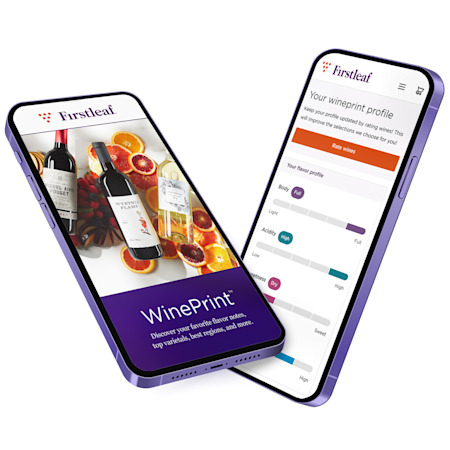
WinePrint™ by Firstleaf
Are you looking to learn more about your wine preferences? Check out our Wine Print for an in-depth look at your personal tasting profile. Discover your favorite wines, varietals, regions, and tasting notes and get personalized recommendations wherever you are.
Learn More